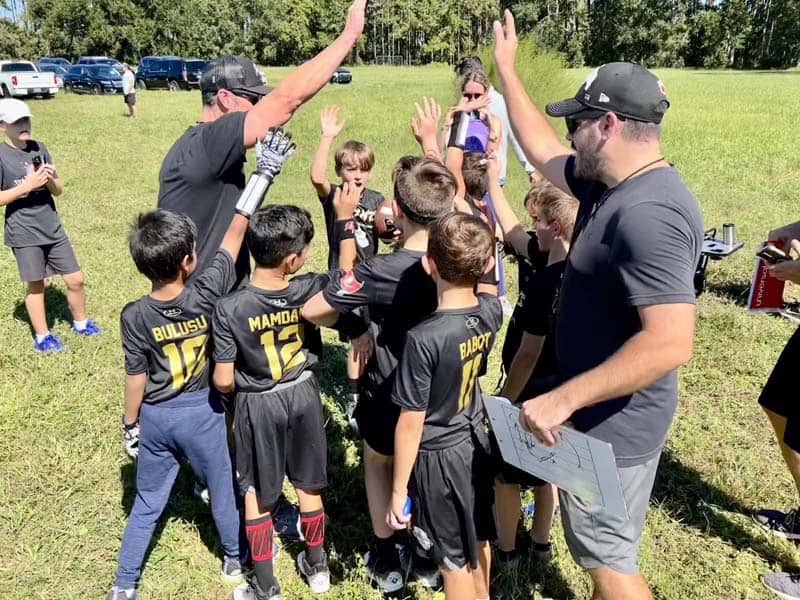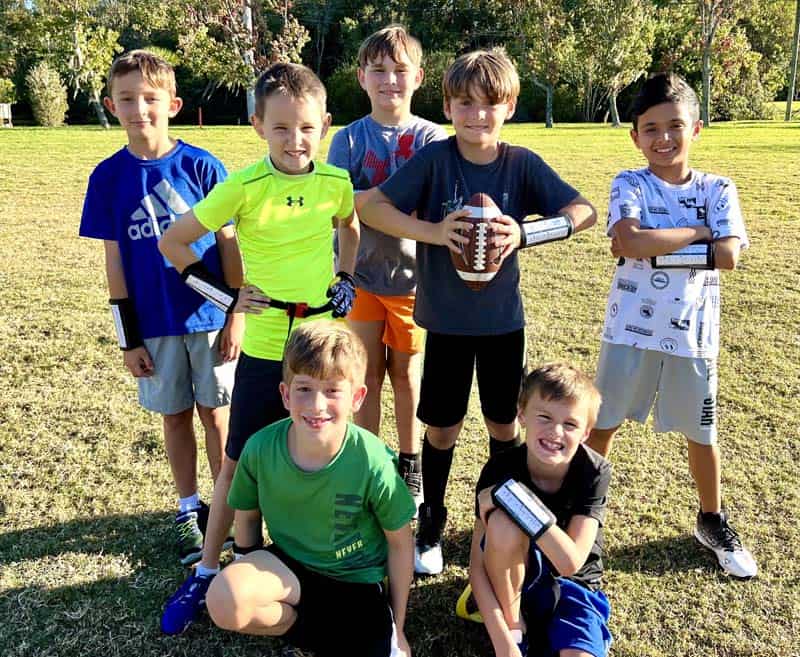The Positive Power of Youth Sports
Mental health took a hit during the COVID-19 pandemic. Lockdowns, quarantines and distancing meant that outside activities like youth sports were put on hold.
For some kids, sports were their outlet, their stress release and their social circle. Taking all of that away at once can certainly have a huge impact—especially at such a young age.
Fast forward two years, and some kids are still trying to get back to normal. “A lot of kids are just eager to be back,” says Kenny Jackson, who has coached youth sports for 13 years.
Currently, Jackson coaches P.E. at Westchase Elementary and Lowry Elementary, is a youth baseball coach and runs Best Camp Ever, an afterschool and summer sports camp program for kids in grades K-6. Over the last few years, Jackson has noticed the impact that the pandemic has had on kids.
“As a society, kids don’t want to go out as much as before. It’s easier to stay inside on technology.” But once they get the motivation to go outside and get going, it all starts to come back.
For some parents, enrolling their kids in youth sports goes beyond athleticism. Yes, there are plenty of physical benefits. However, when kids are active, they release endorphins which reduce the stress hormone cortisol.
This stimulates norepinephrine, which improves mood. The mental health benefits of youth sports have begun to matter just as much as the physical benefits, prompting more parents to sign their kids up to be part of a team, regardless of whether they’re a born athlete or have never set foot on a field or court.
So, what exactly are some of the mental health benefits of joining a team?
Community
The National Council of Youth Sports (NCYS) believes that properly structured programs can provide a safe, wholesome and nurturing environment for children and teens that instill a sense of community where they feel supported and are engaged with adults who care about their mental and physical wellbeing.
For children who are struggling with stress at home or school, community-building rituals can be key.
Confidence
This is a huge benefit of joining a team if the team is structured properly. “Make the games something where all kids can succeed in some way,” suggests Jackson.
Kids all play at different levels, so their goals and victories can vary. No matter how big or small, any achievement can boost a child’s self-esteem.
“Push the small victories and always encourage them,” says Jackson, “Reward them just for trying.”
Socialization
There’s a huge social aspect that comes with being part of a team. Playing sports requires face to face interaction and gives kids the chance to socialize with others outside their typical peer groups.
“On a team, being around other kids who have similar interests can help you feel like you belong,” says Jackson, “Nothing beats team camaraderie.”
Human interaction is important for maintaining mental health and playing a sport gets kids away from their electronic devices.
The off-field experiences can also help to forge bonds and relationships. Post-game parties can create memories as special as winning a game!

Resilience
Losing a game isn’t always a bad thing. It can teach kids that mistakes are OK.
“Let kids know that it takes practice and you’re not going to get good at it right away,” Jackson says. “Remind them that they have a quality to contribute that others might not have.”
According to the NCYS, building resilience can be key to maintaining mental health and can serve young players well for their entire lives. Not playing your best or losing a game can teach kids to learn from those failures and try their hardest to do better next time.
Finally, how you act as a parent or coach can heavily impact your child’s mental health.
While it’s important to provide structure and discipline, being too harsh can tear kids down.
A coach who motivates and uses positive reinforcements is much more effective than a coach who yells until they’re red in the face.
“Everyone’s goal is different, and some kids might need more encouragement than others,” Jackson says. “Let them know you don’t have to be good right off the bat and focus on what they’re good at.”
Originally published in November 2022 of Tampa Bay Parenting Magazine.


